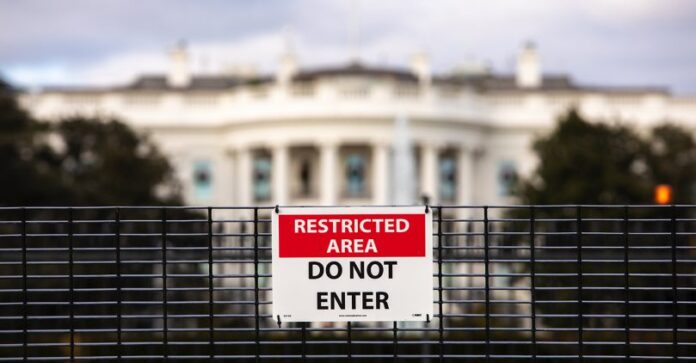
“Perhaps the biggest looming pardon question is whether Trump will consider granting himself a pardon, amid state investigations into his business and finances and the prospect of federal investigators scrutinizing him after he leaves office,” CNN’s Evan Perez noted.
Stacy M. Brown | NNPA Newswire Senior National Correspondent
According to multiple news reports, with the walls of defeat from the 2020 election closing in, lame-duck President Donald Trump may be seeking a way to avoid prosecution after he is no longer in office while still claiming victory in the election.
Numerous outlets are reporting that Trump is preparing for life after the White House, planning a major media platform that could net him billions of dollars because of his robust following.
He’s also examining a host of presidential pardons, including for his family members and himself.
One former Democrat aide even floated this wild prediction on Nov. 14:
In an editorial for The Hill, Brent Budowsky, who served as an aide to former Sen. Lloyd Bentsen (D-Texas) and former Rep. Bill Alexander (D-Ark.), said “Trump will resign the presidency, and [Vice President] Mike Pence will pardon him.”
“A presidential pardon by Pence would not offer protection from cases originating in states, but those cases will be far more manageable if they are not sunk into a morass of federal cases that only a federal pardon can protect him from,” Budowsky added. “While I suspect we will learn that he is not nearly as wealthy as he claims, Trump can reap extravagant financial rewards from the mother of all business deals which he could conclude shortly after he leaves office.”
CNN reported that current and former Trump administration officials say there’s been minimal preparation for an expected onslaught of clemencies, as Trump is still pursuing dubious legal challenges to the election.
But his Twitter feed over the past three years offers a working list of where the President might turn to wield his pardon power – primarily toward those targeted by former special counsel Robert Mueller’s investigation.
“Perhaps the biggest looming pardon question is whether Trump will consider granting himself a pardon, amid state investigations into his business and finances and the prospect of federal investigators scrutinizing him after he leaves office,” CNN’s Evan Perez noted.
Vanity Fair, Forbes, The Independent, and other news outlets are also publishing articles related to Trump’s possibility of pardoning himself.
Each outlet speculates that the President is sure to pardon Trump organization employees who might come under investigation.
Attorney and former New York City Mayor Rudy Giuliani reportedly is under federal investigation, and former Trump advisor Steve Bannon has already been indicted.
It’s believed a pardon will occur for Jared Kushner’s father, Charles Kushner, who was prosecuted by former New Jersey Governor Chris Christie and pleaded guilty in 2004 to tax evasion, retaliating against a witness and lying to the Federal Election Commission.
Forbes reported that President-elect Joe Biden wouldn’t pardon Trump.
“If Trump can’t pardon himself, he would likely have to preemptively resign from office so that Vice President Mike Pence could assume the presidency and pardon him,” the magazine reported, echoing the editorial by Brent Budowsky in The Hill.
Any pardon Trump potentially receives would only apply to alleged federal crimes.
New York Attorney General Letitia James and Manhattan District Attorney Cyrus Vance have separate state-related fraud and financial crimes cases involving Trump.
A federal pardon would not hinder prosecution in those cases.
Only the governor could offer Trump such protection.
Trump’s adversarial and sometimes volatile relationship with New York Democratic Mayor Andrew Cuomo makes such a state-level pardon challenging to imagine.
“The ‘Power to grant Reprieves and Pardons for Offenses against the United States, except in Cases of Impeachment,’ is vested in the President,” the Department of Justice wrote in August 1974, days before President Richard Nixon resigned.
“This raises the question of whether the President can pardon himself. Under the fundamental rule that no one may be a judge in his own case, it would seem that the question should be answered in the negative,” Forbes reported.


